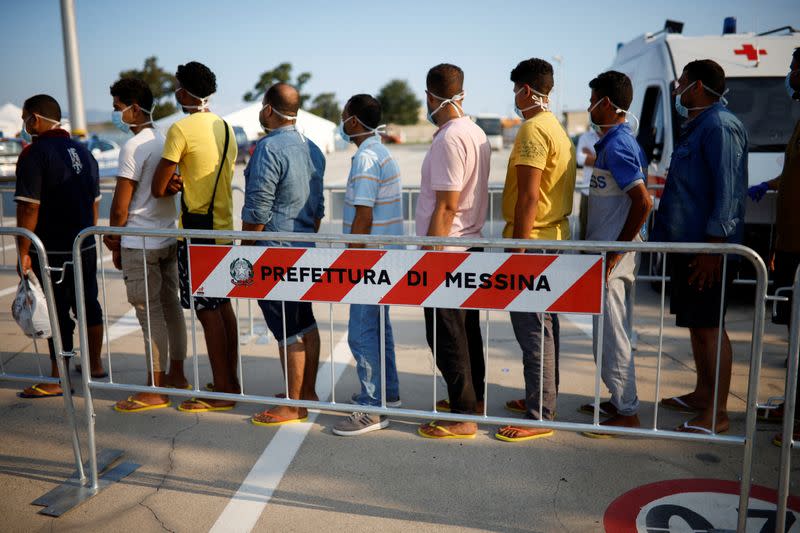Niger president calls for job-based immigration quotas in Europe
MILAN (Reuters) - Niger's President Mohamed Bazoum said in an interview with an Italian newspaper on Friday that African and European states should agree quotas for African immigrants tailored to employment needs.
An agreement based on the number of Africans that each European country needs for its labour market could help resolve the problem of illegal migration and human trafficking, Bazoum told Italian newspaper La Repubblica.
His head of communications confirmed his comments to Reuters.
"In France, Spain and Italy you have many jobs in sectors of employment where Africans can work," Bazoum said.
"These numbers need to be established, country by country, and then the consulates entrusted with the responsibility of enforcing them."
Bazoum spoke on a trip to Italy where he met Italian President Sergio Mattarella and attended a conference in Rome with other African heads of state.
Italy was on the frontline of a European migration crisis in 2015 and 2016, when a million refugees fled war and poverty in Syria, Iraq and Afghanistan, adding to existing migration.
Niger is both a source country and a transit point for migrants who continue to trek to north Africa and travel across the Mediterranean to Europe's southern coastline.
At a peak in 2016, 181,000 migrants reached Italy by sea.
While numbers have subsided, thousands embark on treacherous journeys to European countries each year in hope of finding safer lives and better economic opportunities.
Food shortages caused by the war in Ukraine could spur a new wave of migration from Africa an the Middle East, with over 150,000 arrivals expected in Mediterranean countries on major migrant routes into Europe this year.
This is set to exacerbate existing tensions between the governments of origin and host countries, which argue over who should accommodate immigrants.
Bazoum said agreements between African and European states would help regulate regular immigration and tackle irregular immigration "that fuels the worst trafficking".
He also noted the limits of funding development projects to stem economic migration - a widespread approach in Europe - pointing out that "Africa's development is something far more complex".
"The idea that European investments in Africa can be enough to bring about development and stop migrants in their countries of origin is unrealistic," he said, calling on Italian companies to break free from the "classical view" of the continent as conflict-ridden.
(Reporting by Federico Maccioni; Additional reporting by Boureima Balima in Niamey; Writing by Nellie Peyton and Sofia Christensen; Editing by William Maclean)


